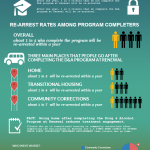Happy holidays from IRETA!
Screening for risky alcohol use not nearly as common as similarly effective preventative services
Download IRETA’s new case studies to learn how organizations are using SBIRT in the real world.
Out of Sight, Out of Mind?
SBIRT pushes healthcare integration, heightens awareness of behavioral health problems. We’ve got a chance to connect more substantially with the folks who are using SBIRT in northeast Ohio, including ONE Health Ohio CEO Ron Dwinnells.
Substance Users’ Lives Have Value
A Message from IRETA’s Board Chair Rev. Dr. James Simms.
Completing the Program is Important…But it’s Just the First Step
IRETA recently completed a program evaluation of the Level 3C Residential Drug and Alcohol Treatment Program at Renewal, Inc, a nonprofit providing alternative housing and community corrections services for individuals in Allegheny County, Pennsylvania, and Federal justice systems.
Campus recovery groups transform lives. Can they change the student body at large?
“You were the first-ever president of the student recovery group at Penn State University. That meant you were one of the first people to talk publicly about your own addiction in a university with almost 100,000 undergraduate students. And you were only 21 years old. How did that feel?”
What is SBIRT and why might it fit well in mental health settings?
Sort of amazingly, research on SBIRT for risky substance use in mental health settings is scant. That’s why we’re excited about a large randomized clinical trial that UCLA kicked off last year.
What the heck is spirt?
What is this S-B-I-R-T? Why do you keep using it like I’m supposed to know what it means? IRETA works to offer accurate information about substance use and substance use disorders and we know that the information hardly matters if it doesn’t make sense to you.
Are medications on the menu?
New reports suggest opportunities to increase utilization of medication-assisted treatment for opiate addiction in Allegheny County, Pennsylvania.
Recovery is Excelsior, Ever Upward
our culture and language have described these issues as nearly impossible to tackle. We even have slogans like “once an addict, always an addict.” However, the evidence paints a different picture. Let’s expand the definition of recovery during National Recovery Month.












